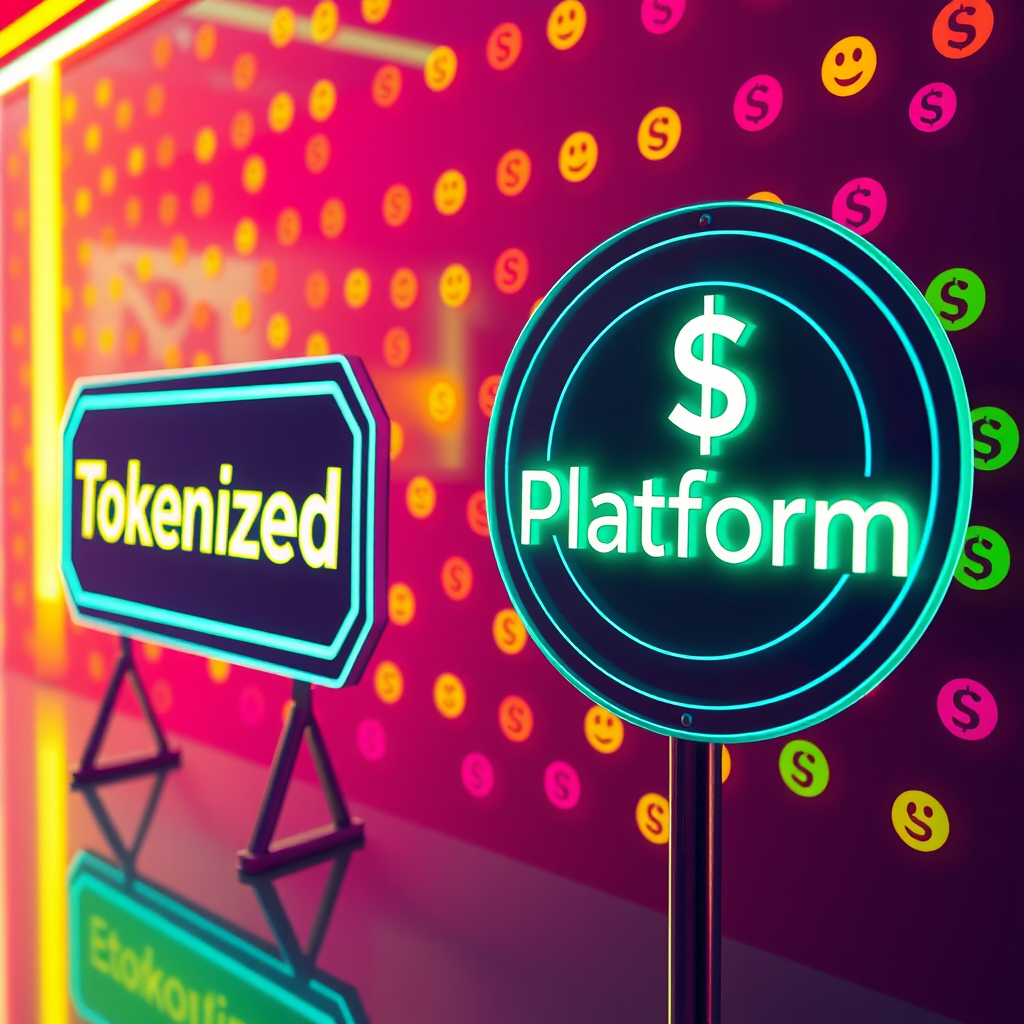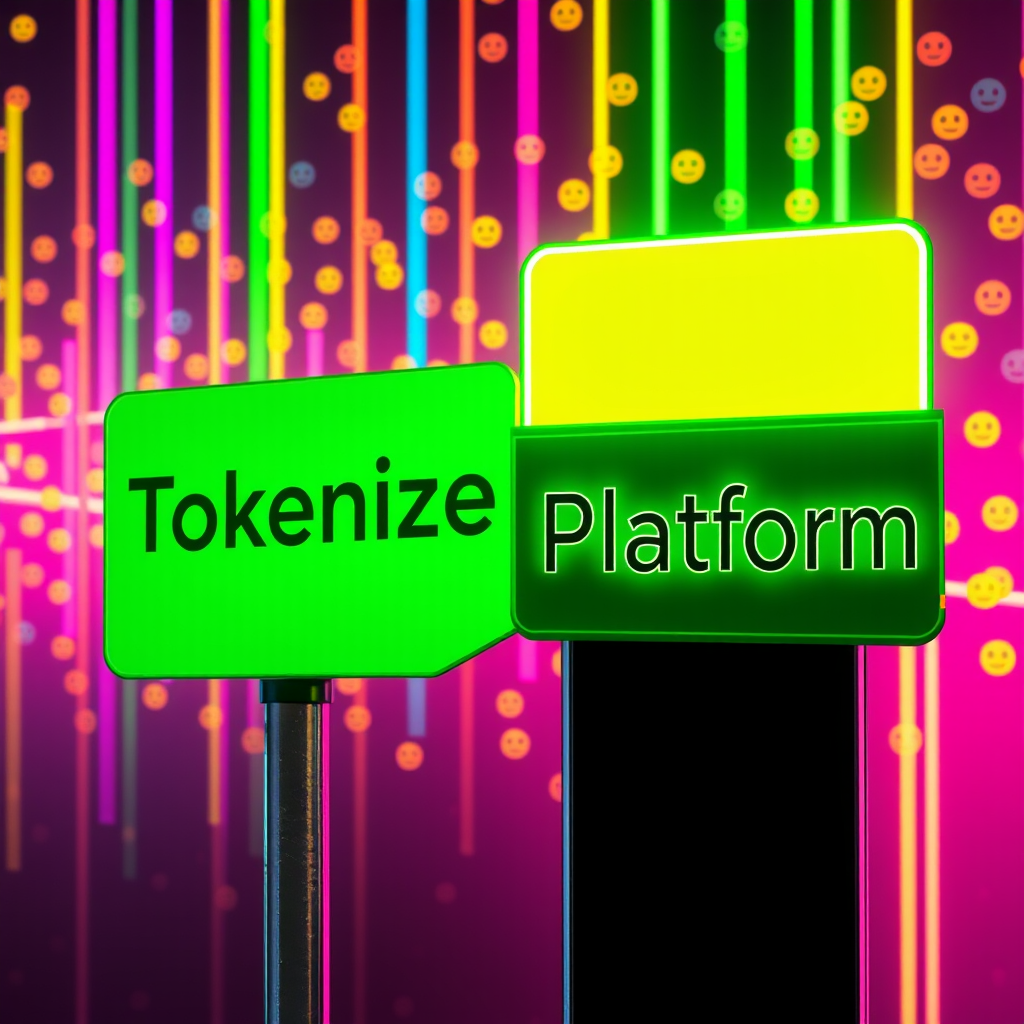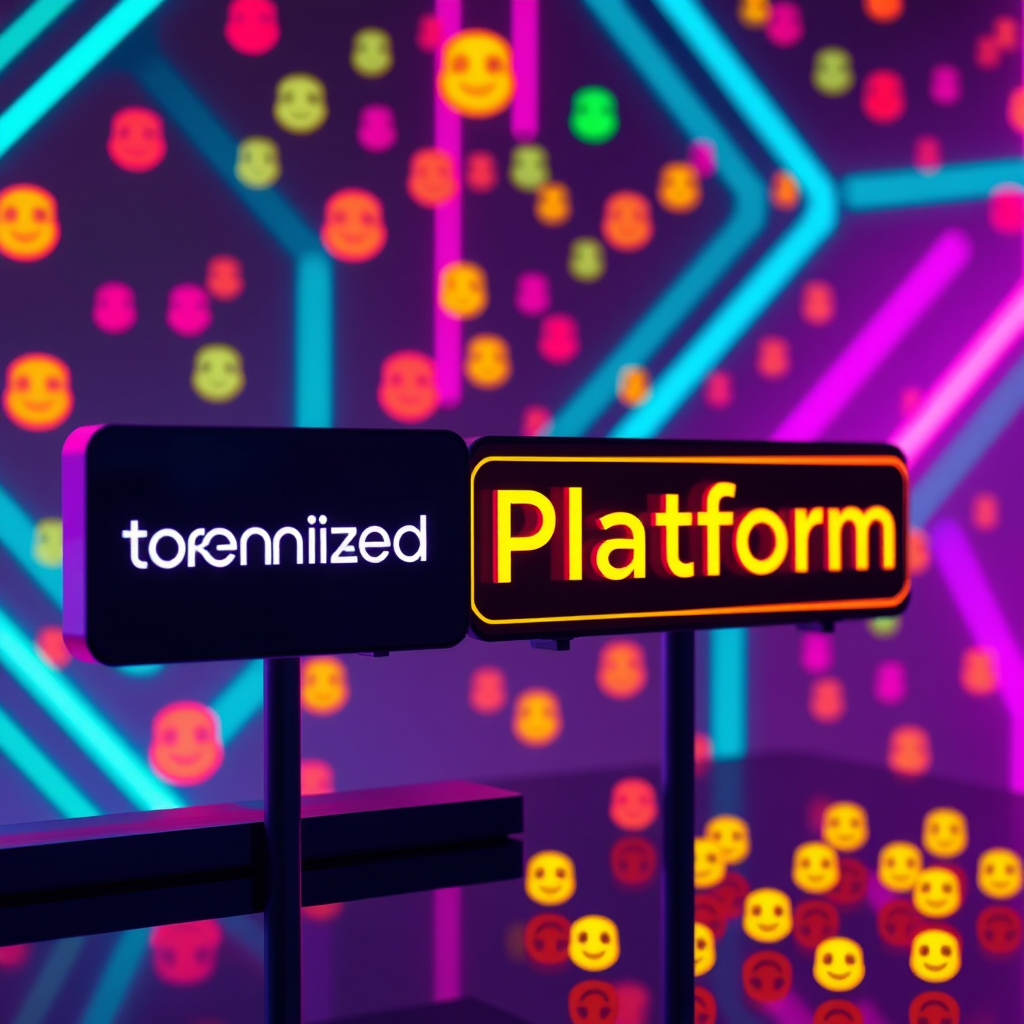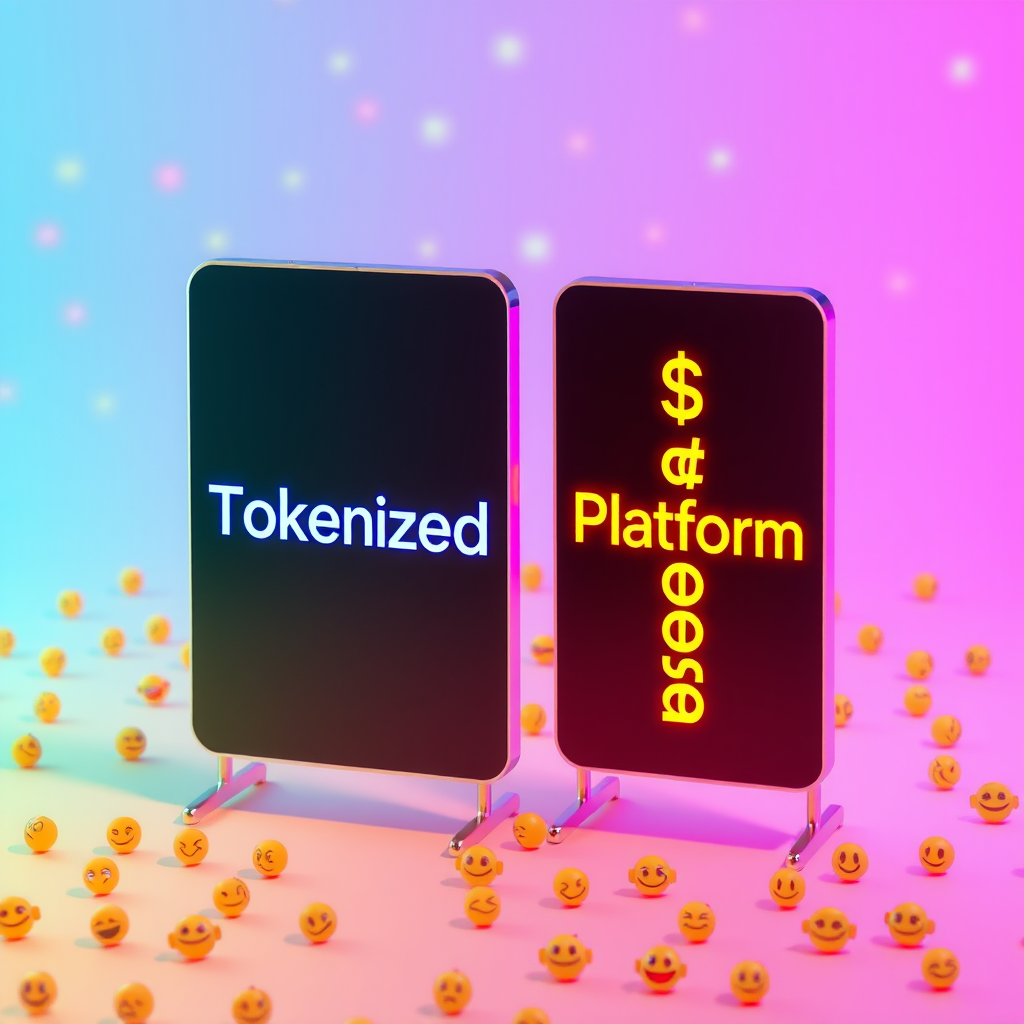Tokenized real estate is an innovative approach that leverages blockchain technology to transform the way we perceive property ownership and investment. At its core, tokenization involves converting the value of real estate properties into digital tokens on a blockchain, such as Ethereum. This process creates a digital representation of real-world assets (RWA), allowing for the division of property ownership into smaller, more manageable fractions, commonly referred to as fractional ownership. By making real estate accessible to a broader pool of investors, tokenized real estate offers an entry point for individuals who may not have the capital to purchase entire properties outright.
The concept of tokenization in real estate is underpinned by the security and transparency that blockchain technology provides. By using a tokenization platform, real estate assets can be recorded on the blockchain, ensuring immutable and verifiable ownership records. This process reduces barriers to entry and provides a streamlined method for buying, selling, and trading properties or shares in properties. As a result, tokenized real estate democratizes investing, making it possible for smaller investors to participate in the real estate market alongside traditional, larger stakeholders.
The role of ethereum in real estate tokenization

Ethereum plays a pivotal role in the real estate tokenization process, primarily due to its robust and flexible smart contract capabilities. Acting as a decentralized platform, Ethereum enables the creation and handling of smart contracts, which are self-executing agreements with the terms directly written into lines of code. These smart contracts facilitate the automation and enforcement of agreements without the need for intermediaries, ensuring transparency and reducing transaction costs associated with traditional real estate deals.
The blockchain on which Ethereum operates provides an immutable ledger for recording and verifying transactions, making the process of tokenizing real estate assets both secure and efficient. When real estate is tokenized, ownership is broken down into digital tokens that can be easily transferred between parties, and Ethereum’s blockchain records each transaction in a transparent and traceable manner, bolstering investor confidence by verifying that each token holder’s ownership is legitimate and protected from fraud.
Moreover, Ethereum’s widespread adoption and strong developer community contribute to its prominence in the tokenization platform landscape, offering a range of decentralized applications (dApps) that can be utilized to manage and trade tokenized real estate assets. This infrastructure is crucial for enabling liquidity solutions within the sector, as it supports trading environments where investors can buy and sell real estate tokens with significant ease, promoting a vibrant secondary market for real estate investments.
Ethereum’s ability to integrate with various tokenization platforms further extends its utility in the realm of real estate. These platforms streamline the process of creating, issuing, and managing digital tokens, optimizing the tokenization journey from start to finish. By leveraging Ethereum’s technical capabilities, tokenization platforms can offer features such as automated compliance checks and real-time asset valuation, which enhance the overall efficiency and reliability of real estate investments in digital form.
Benefits of using a tokenization platform
Utilizing a tokenization platform brings numerous advantages to the realm of tokenized real estate, capitalizing on the transformative potential of blockchain technology. First and foremost, these platforms streamline the process of tokenizing real estate assets, making the traditionally complex and cumbersome task of asset digitization more accessible and user-friendly. By using automated systems and smart contracts, a tokenization platform reduces the need for manual oversight, lowering operational costs and minimizing the risks associated with human errors.
In the context of investing, a tokenization platform enhances the accessibility of real estate opportunities for a broader audience. Investors, regardless of their financial capacity, can participate in the property market through fractional ownership. This democratization of investment is particularly beneficial for smaller investors who previously faced significant barriers to entry in the real estate sector. With the ability to purchase fractions of high-value properties, investors can diversify their portfolio with lower capital outlay, mitigating potential risks associated with holding a single asset.
Security and transparency are further bolstered when using a tokenization platform, as all transactions are recorded on the blockchain. This ensures that ownership and investment data are auditable and protected against fraud, instilling greater confidence among investors. The immutable nature of blockchain records means that once data is entered, it cannot be altered, providing a reliable audit trail for any transaction. This transparency is critical for maintaining trust and legitimacy in digital asset management.
Another pivotal benefit of a tokenization platform is the liquidity it introduces to real estate investments. By creating a secondary market where real estate tokens can be traded, these platforms effectively address one of the most challenging aspects of property investment—the traditionally low liquidity of real estate. Investors can buy and sell their tokenized shares with relative ease, knowing that their investments are backed by verifiable assets on the blockchain. This newfound liquidity is especially advantageous in acting swiftly to market changes, offering investors the flexibility to recalibrate their portfolios as needed.
Furthermore, tokenization platforms often provide advanced features such as real-time asset valuation and automated compliance with regulatory standards. These features not only enhance the investment experience but also ensure that both issuers and investors are operating within legal frameworks, smoothing the integration of blockchain into traditional financial systems. In summation, by leveraging the power of a tokenization platform, the real estate industry can significantly advance towards a more efficient, inclusive, and transparent future.
Liquidity solutions for investors

The introduction of tokenized real estate has brought about an innovative approach to addressing liquidity challenges within the traditional real estate market. By utilizing a tokenization platform, investors now have access to liquidity solutions that were previously unheard of in real estate investing. One of the primary benefits is the ability of Blockchain technology to facilitate the fractional ownership of real estate assets. This process not only allows for the division of property ownership into smaller, more manageable shares but also enables these shares to be traded more freely on decentralized exchanges.
This increased liquidity is especially critical in an asset class that has historically been plagued by low liquidity due to the high transaction costs and lengthy processes associated with buying and selling real estate. Tokenization platforms simplify these processes by automating transactions and reducing the reliance on intermediaries, making it easier for investors to quickly liquidate their positions should they need access to cash. By employing blockchain technology and leveraging Ethereum’s smart contract capabilities, the transfer of these tokenized real estate shares is both secure and efficient, allowing for seamless buying and selling reminiscent of traditional equity markets.
Investors are also empowered by the transparency that blockchain ensures, with each transaction being verifiable and recorded in an immutable ledger, thereby bolstering confidence and trust in the market. The tokenization of real-world assets (RWA) on platforms that utilize Ethereum creates a dynamic marketplace where ownership can be transferred with ease, and compliance checks can be automated, further aiding in the provision of liquidity.
In addition to increased transactional simplicity and speed, tokenization platforms facilitate the emergence of secondary markets, where fractional shares of real estate can be traded, increasing the overall liquidity of tokenized properties. These secondary markets provide investors with the opportunity to diversify their portfolios without the significant capital requirements associated with full property ownership, enabling a broader demographic to participate in real estate investments. Ultimately, the liquidity solutions enabled by tokenized real estate on blockchain platforms not only make investing more flexible and accessible but also pave the way for a more sophisticated and democratically inclusive real estate market. This represents a substantial shift from traditional methodologies, promising a landscape where assets are more fluidly and transparently managed, benefiting investors and the broader economy alike.
Future prospects of tokenized real estate

As the market embraces the growing potential of tokenized real estate, future prospects appear promising and revolutionary. This innovative approach is set to redefine the landscape of property investing by fully leveraging blockchain technology to enhance transparency, ensure secure transactions, and facilitate the seamless operation of real estate markets. With the continued advancement and acceptance of this technology, real estate tokenization is poised to further increase its appeal to both seasoned investors and newcomers seeking to diversify their investment portfolios.
Future developments within the tokenization platform ecosystem are expected to enhance scalability, enabling the integration of larger, more diverse property portfolios into the blockchain. This could result in a broader range of real estate assets being made accessible to investors, from residential and commercial properties to more niche markets such as farmland or mixed-use developments. The ability to efficiently tokenized real-world assets (RWA) on platforms like Ethereum is anticipated to open up a more democratized environment for potential investors to explore opportunities that were previously out of reach.
The rise of secondary markets for real estate tokens also stands as a crucial aspect of this future vision. Such platforms promote continued liquidity in the market, where fractional ownership can be seamlessly exchanged, making property investments more dynamic and responsive to market conditions. As tokenization matures, enhanced regulatory frameworks are likely to emerge, ensuring that these transactions remain secure, compliant, and aligned with global financial standards. This regulatory evolution is critical to fostering trust among participants, encouraging wider adoption of blockchain technology in real estate.
Moreover, tokenized real estate could facilitate greater financial inclusion by enabling a wider portion of the population to participate in real estate investing. The ability to purchase fractions of property using a tokenization platform democratizes access to real estate assets, empowering individuals who may not have the capital required for traditional investment avenues. As technology continues to evolve, the integration of artificial intelligence and machine learning within tokenization platforms could further enhance decision-making processes by providing predictive analytics and insights into market trends.
As environmental, social, and governance (ESG) considerations become increasingly important, there is an opportunity for tokenized real estate to contribute positively by providing transparency in sustainability metrics and encouraging responsible investing. The future of tokenized real estate, underpinned by robust blockchain solutions, promises a more transparent, efficient, and inclusive marketplace, reshaping the investment landscape and fostering growth and innovation within the real estate sector.






